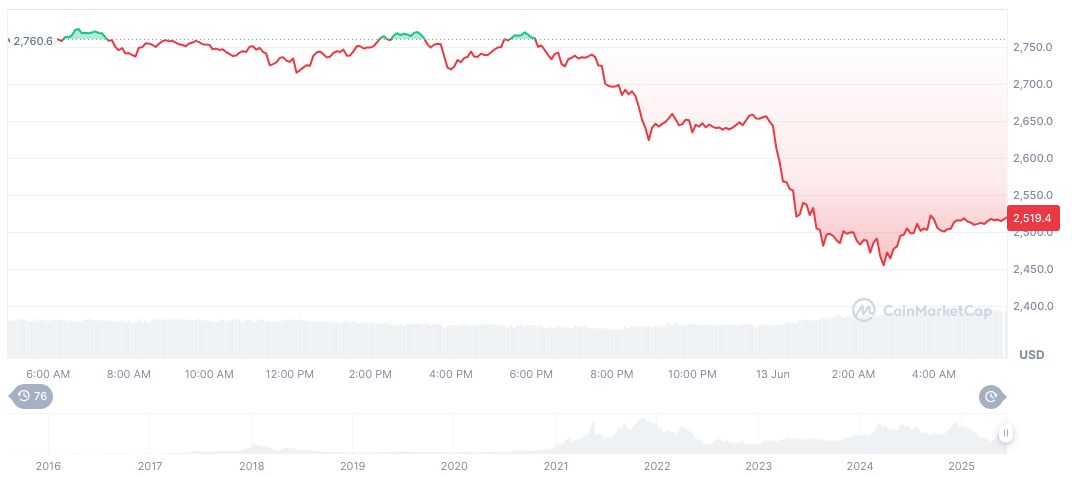Israel is preparing for the possibility of a full-scale war with Iran, the office of Israeli Prime Minister Netanyahu told TASS. The geopolitical tensions between Israel and Iran have significant global implications, impacting market sentiment and potentially affecting financial markets.
The geopolitical tensions between Israel and Iran have significant global implications. These issues are not only a concern for governments but also for financial markets worldwide. Increased tensions could sway market sentiment across global financial systems, although direct impacts on cryptocurrencies remain speculative.
Israel and Iran: A Geopolitical Flashpoint
Israeli Prime Minister Netanyahu’s office stated readiness for potential conflict with Iran, signaling heightened tensions in the region. The official statement to TASS reflects ongoing geopolitical strains that remain a focal point for governments and financial markets globally.
Market sentiment across global financial systems often sways based on such geopolitical tensions, though direct impact on cryptocurrencies remains speculative. In similar past scenarios, Bitcoin and Ethereum were largely influenced by prevailing macroeconomic climates rather than isolated geopolitical developments.
“Israel is prepared for a full-scale war with Iran.” — Benjamin Netanyahu, Prime Minister of Israel
Crypto Markets: Historical Data and Potential Implications
Did you know? The last time global geopolitical tensions rose sharply, in 2022, Bitcoin saw price fluctuations exceeding 20% over three months, illustrating market sensitivity to international developments.
According to CoinMarketCap, Ethereum (ETH) currently trades at $2,518.89 with a market cap of formatNumber(304083883471, 2). ETH’s trading volume in the past 24 hours reached formatNumber(38261435274, 2), marking a 24.87% increase. Over 60 days, ETH displays a 53.65% rise, despite an 8.50% decline in the last 24 hours.

Analysis from Coincu research indicates that while direct impacts on cryptocurrencies from geopolitical tensions are uncertain, long-term investor confidence could waver. If tensions escalate, regulatory pressures or liquidity shifts might further influence crypto volatility.




